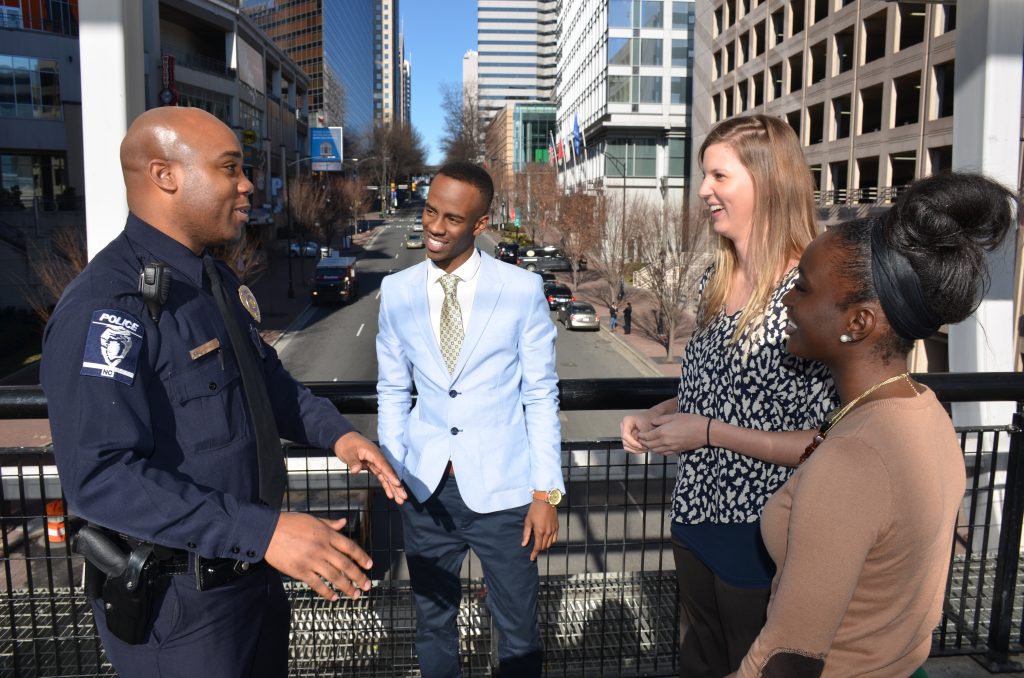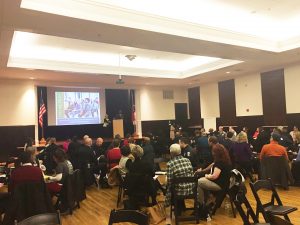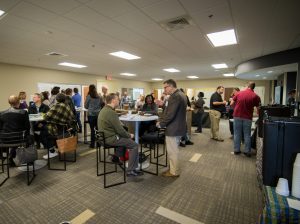
On a Monday night in late September 2016, community members filled the Charlotte City Council Chambers to capacity. One by one, they expressed fear, anger and frustration about the officer-involved shooting of Keith Lamont Scott and the state of the community. The response to what was heard both in the Chambers and during days of protests would prove to be a defining moment for the city.
Just a short week later, on Oct. 3, 2016, Charlotte City Council issued a letter to the community outlining goals to address issues and concerns expressed by the community. This foundation of this letter is about everyone working together—across all communities—to make Charlotte the best city for all.
For City Council, that means four things in particular:
- Trust in community policing
- Quality, affordable housing
- Good jobs and the skills to get them
- Other opportunities: the community letter is just the beginning
City Council recognizes that these efforts span far beyond local government and that it will take everyone to truly achieve a better, stronger community. So how do you ensure that the community feels included in this effort? Creating more opportunities for citizens to be engaged in the process is a good start.
 One successful method of engagement was creating a space for dialogue. City staff worked with the Charlotte-Mecklenburg Community Relations and the Community Building Initiative to begin hosting “Can We Talk?” forums throughout the community. This allowed people from all walks of life and different experiences to come together and have conversations about the events that took place…and what we could do collectively to make our city better. We learned that even through the anger and frustration, people wanted to be a part of the solution!
One successful method of engagement was creating a space for dialogue. City staff worked with the Charlotte-Mecklenburg Community Relations and the Community Building Initiative to begin hosting “Can We Talk?” forums throughout the community. This allowed people from all walks of life and different experiences to come together and have conversations about the events that took place…and what we could do collectively to make our city better. We learned that even through the anger and frustration, people wanted to be a part of the solution!
Engaging the community on this issue could not be a one-size-fits-all approach so the city decided to have pop-up meetings, use community leaders as ambassadors, conduct surveys and host forums and workshops. The Charlotte-Mecklenburg Police Department alone is hosting more than 30 community meetings each month. City employees are becoming more involved as well. A team has committed to having 10-minute face-to-face conversations with community members and Charlotte-Mecklenburg 311 call center representatives have been engaging in community letter conversations before concluding their calls. Between 311 and participants in the city’s civic leadership program, over 500 conversations on the community letter have already taken place!
This is an example of how a community will be actively engaged when there is a topic that evokes passion and there are opportunities for their voices to be heard. What cannot be overlooked in all of this is that elected officials and city leaders are listening… and responding. The city is communicating accomplishments and progress, responding to questions and demands from community groups and taking the feedback received directly from the  community to help move this initiative forward.
community to help move this initiative forward.
Some people may not have heard about the letter — it wasn’t mailed, or hand delivered — it couldn’t be — to the 800,000 plus residents of Charlotte. But, City Council wants to be sure the community knows it exists and all of the important work taking place. The community letter belongs to all of us and together, we can make Charlotte the best city for all.
For more information, visit charlottenc.gov/communityletter
 This post was written in collaboration with Ashley Simmons, Strategic Storytelling Manager, City of Charlotte.
This post was written in collaboration with Ashley Simmons, Strategic Storytelling Manager, City of Charlotte.